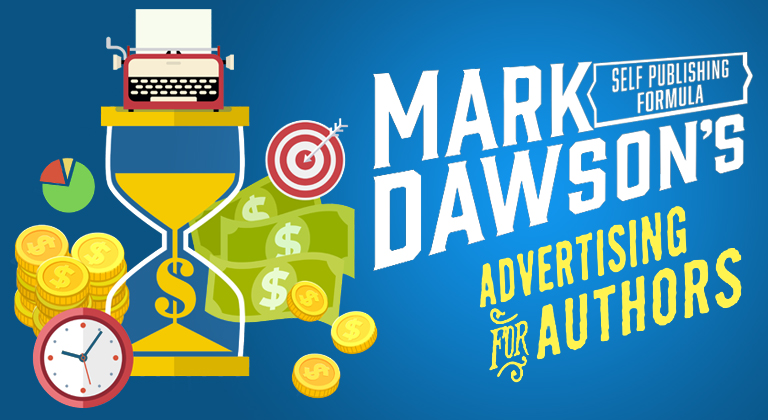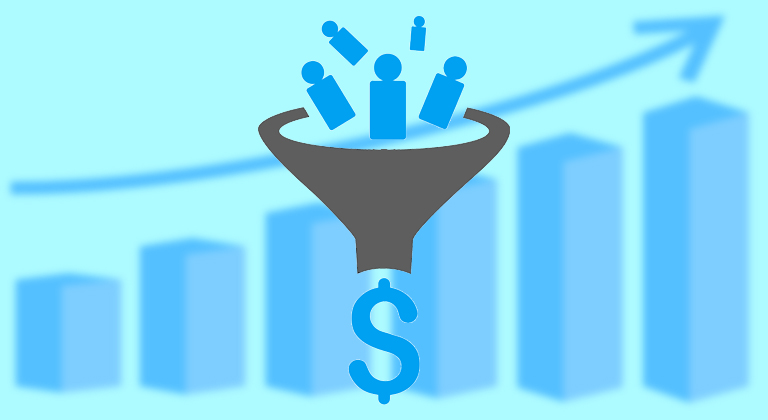Is Mark Dawson’s Ads for Authors worth the price?
Recently, the famous Ads for Authors class from Self Publishing Formula opened up. With access available until June 24, this course promises to teach aspiring authors what they need to know to amplify the impact of their books on Facebook, Advertising for Amazon, Instagram, and more. But is it worth the money? With less than a week left to sign up before it disappears again for months, we wanted to give you the answers you need ASAP.
Mark Dawson’s course is generally regarded as the essential advertising resource – but it’s not cheap. With $849 to lay out for lifetime access, one question I get from many authors considering the program is – is it worth the money?
Well, based on my experience – my answer is a “qualified” yes.
That’s probably not exactly the straight-forward answer you were looking for, but at Hidden Gems we’re all about transparency, and it’s important to point out that Mark Dawson’s course is missing three vital ingredients – the things that will make the difference between becoming an advertising powerhouse, and losing your investment.
But here’s the thing – these three ingredients are not things Dawson’s course can provide. They’re up to you to supply.
As this is a course we’re talking about, another way to think of these things is as “prerequisites” to being able to truly get the most out of it.
So, if you’re a self-published author and you’re considering buying the course, you’ll want to make sure you can meet these prerequisites before committing to spending that money.
As long as you can do that, you’ll likely find great value in the course. So let’s go over what you need to know.
First – what is Mark Dawson’s advertising for authors course?
Mark Dawson is a prodigiously successful self-published author, who has sold millions of books in his John Milton, Beatrix Rose and Isabella Rose series, and makes seven-figures every year in book sales alone. In an environment in which everybody is trying to sell you courses about how to become a best-selling author, top-tier YouTuber, or the next Elon Musk, the one thing Mark Dawson’s course materials have going for them is the fact that they clearly work – otherwise Mark Dawson wouldn’t be where he is on the bestseller lists!
In fact, Dawson’s perhaps just as famous for his Self-Publishing 101 and Advertising for Authors course as he is for his writing. His courses are largely considered the best self-publishing courses going. It’s not cheap, though, at $849 for lifetime access.
So, what do you get for that? Lifetime access to regularly updated course materials, sure – plus tons of bonus content.
More importantly, though, you purchase the promise: That you can use advertising to take your writing to the next level and become massively successful just like Mark.
But does it work?
The reason people ask me this question is that I first took Mark Dawson’s course back in 2015, and it’s clearly shaped the impact of my self-publishing career.
To attach numbers to that – well, I’ve been self-publishing since 2013. In my first year of self-publishing, I earned $13,867.17. By utilizing what Mark Dawson taught in that class, in the same period in 2018/2019, I earned $97,792.57. In fact, in my best month that year, I earned $14,573.49 – more than I’ve ever made doing anything else.
Mark Dawson’s course helped me reach the stage in which self-publishing is the thing I’ve made the most money at, and it’s also the thing that I love doing the most. He literally made my dreams come true – but will the same materials work for you?
Well, the answer is a resounding, definitive maybe.
Over the course of my self-publishing career, I’ve sold 64,133 copies of my books, and had nearly 30 million page reads – so, for me, yes – it worked. In fact, it worked amazingly – and I’ve barely scratched the surface of what I could have the potential to achieve…
…however, therein lies the problem; and why not every author who buys the course will see a positive return on their investment.
I remember when I first wrote about Mark Dawson’s courses. I was a fan, but on Twitter I asked Mark: “What’s the secret sauce?”
Because something was missing from his course materials – for me, at least. I had definitely seen a massive boost in my book sales, but not nearly the level I’d hoped. I thought Mark must be keeping the best materials secret; even though he responded back promising: “there is no secret sauce.”
From Mark’s perspective, he has included everything that he possible could – but it’s still not entirely accurate to say his course contains everything. There is that ‘secret sauce’ and it actually contains three extra ingredients that every author has to be willing and able to add on their own.
That means it’s vitally important that you are aware of those things BEFORE you invest the money in his class, so that you can decide for yourself if you have what you need to get the most out of it.
What are the “missing ingredients”?
The three prerequisite ingredients you need to have to make sure you get the most from Mark Dawson’s Ads for Authors course are:
#1 Time
Tim Ferris said “attention is the new currency” and that’s certainly the case when it comes to Ads for Authors. Mark and his crew provide you with hours of content, all broken up into easily digestible, bite-sized pieces – but there are still a lot of them.
The BIGGEST thing I’ve heard from writers who say the course materials didn’t work for them is: “Well, I bought the Mark Dawson course, but I didn’t have the time to do it.”
That’s actually understandable – because it takes HOURS. I love Mark, but he’s a posh British guy like me and we aren’t known for our brevity. As a result, the course materials can be a LOT to go through, and even more to pay them the attention they deserve. However, if you don’t take the time to actually do the course materials, it shouldn’t come as a surprise when you don’t get the results you desire.
That means that the first prerequisite you need to make sure you have before starting the course is the time and attention needed to focus and listen to the material from beginning to end – and not while doing something else, like watching television. You don’t just get the information beamed into your head via osmosis – you have to LEARN it.
#2 Money
Like many authors, I was initially sold on the promise of Mark’s course because of what I mentioned earlier: The promise.
I thought I could invest my money, make a profit, and create a massive self-publishing machine – and you can! But not in any way like you’d imagined.
Most authors quit in frustration when they first start putting Mark’s advice into practice because they’re not getting the sales they want right out of the gate, they quickly lose too much money, and they eventually figure “it doesn’t work.”
And honestly, it might not – at least, for them. Nothing will work the same for everyone, and a course like this is no exception. There are just too many variables at stake. Maybe the author didn’t take the time to study the materials properly and truly understand them, or maybe they had issues with the third ingredient (which we’ll get to next), or maybe it was something else entirely.
But often, money was one of the factors that scared them off. I used to work in advertising, so I’m going to give you some advice that Mark won’t: Advertising is digital, but it’s still a case of “throw enough s**t against the wall and some of it will stick.”
When you start out putting Mark’s advice into practice, you’re learning, not earning. You have to be willing to spend your advertising money never initially expecting to see it back. You need to set yourself an advertising budget and burn through it every month.
At first, it’s very likely you won’t see any sort of positive returns. You need to keep tweaking what you’ve learned until you find the right combination of ad elements that work best for your book.
And then eventually, if you invest the time, you’ll build enough momentum to make your advertising self-sustaining, and make a profit – but it takes time and money, not to mention the third and final ingredient, which is arguably the most important of them all:
#3 A Good Book
A good book – or, rather, one that people want to buy. This is the piece that’s most-often missing from the equation, and it’s the ingredient most unsuccessful authors are unwilling to recognize as being the issue. Probably the most common reason authors lose money on Ads for Authors is because they’re not willing to compromise on their vision to produce a book that people actually want to buy.
This is a tough pill to swallow, since most authors make the mistake of only thinking about advertising after they’ve published their book, which is the opposite way successful authors work. The authors who make a living writing know that advertising doesn’t sell books – your product page sells books.
Advertising just drives people to your product page, but to ‘convert’ them into paid sales, you need to have a product people want to buy.
I know this through bitter experience – I didn’t start making money until I started writing books people wanted to read. Until then, I was writing what I wanted to write, but unless you switch mindsets and think from a reader’s perspective, you’ll never make that work. Readers have clear preferences for genres, cover styles, writing beats… If you want to get their business, you need to decide on your genre, and your readership, and make some tough decisions before you hit publish.
You also need to have a strategic plan about writing more books to take this career further. In addition, you need to have a world-class cover and tight editing – equal to any traditionally published book. You also need to have reviews, and your Look Inside and blurb needs to be rock solid.
Unless you have a book that people want to buy, Mark Dawson’s course won’t be able to help you sell more copies – so be prepared to do a lot of research, and to reshape the vision of your book into something that has commercial appeal. I believe that storytelling and writing are different things, so you don’t need to compromise on the plot or message of your book, but sometimes there are things you can alter to keep readers more engaged (like switching perspectives, twisting around a non-linear narrative, etc.)
This is really the acid test for writers – do you want to write only what you want exactly the way you want to write it, or do you want to make money?
In an ideal world, you can do both – and for some authors those two things exactly align. But as is more often the case, there is a balancing act between telling the story you want to tell and doing so in a way to get the most readers possible interested in reading it. It’s work, for sure, but the offset is that you’ll probably end up a much better writer for going through that journey.
Conclusion
If you have a book people do want to buy, though – and you invest in advertising it using Mark’s methods, and you continue to write and publish – you will make money. Writing for a living should be thought of more as a business, not an art – and if you follow the right steps, you will be a successful author. It’s not a question of ‘if’, it’s a question of when. This is a process, and it all starts with having a product that you can sell, but once you’ve nailed that, there’s nothing stopping you.
These three ingredients are the secret sauce which gives Mark’s course its zing. If you have all three of those, Ads for Authors will likely take your sales to the next level – but if you don’t, it’s almost guaranteed that buying the class will just be a waste of your hard-earned money.
In the tradition of the story circle, nothing is won without sacrifice – and the real cost of Mark Dawson’s course isn’t the $849 it takes to buy access, but the level of soul-searching and rewriting you might have to do in order to take advantage of it. If you follow through, though – you’ll find that sacrifice might provide you with the writing career you’ve always dreamed of.
If this blog post was useful to you, and you decide to invest in Mark’s course, please consider using our link to it. It won’t cost you any more money, but we’ll get a commission from Self Publishing Formula, which helps us continue to provide helpful content like this for free to our author community. Thanks!












Intriguing views. I have decided NOT to take these courses for two of the three reasons mentioned i.e. time and money.
Whether or not I have a book out, in this case, for children aged approximately between 7-10, and their parents who will want to buy it, remains to be seen.
I also suggest another reason, and that is that it is very difficult for a relatively unknown author with limited means to become recognised.
Very fair article with solid advice. I’m glad I found it! Thank you!
Thanks for the sound advice. I am seriously considering buying the course, and, if/when I do, it would be extremely churlish of me not to use your link.
In my late seventies, I have the time and the focus. I’m willing to invest some money and, so I’ve been told, I also have a thriller novel that is both relevant and decently written.
I took the course (2020/21) and tried Dawson’s approach on my second launch for a book that had been shortlisted for a literary prize. No significant improvement in sales from the first (non-Dawson) launch. I did increase my contact list as a result.
From what I understand Mark has three courses. I take it the marketing course is what is vital. Is that correct?
Probably yes, if you already understand the website/newsletter/bulk email processes. The advertising course is a vast expansion of, in particular, facebook advertising.
Dear Sir;
Thanks for this valuable advice. My first book: “The Conscience of An Agnostic” is listed on Amazon and I will soon start advertising it. I recently read “Mastering Amazon Ads For Authors” by Brian D. Meeks and I thought it was excellent. I will keep Mark Dawson’s course in mind.
Regards;
Robert Cooper
Things people forget about Mark Dawson… His books (not all but many of the original ones) were published through a traditional publishing house years before. It was only when he got them all back, all edited and ready to go, that he thought to advertise them. So, he didn’t start from a standing start like so many of us, he had a large catalogue of professionally edited books. Secondly, Mark had money as he had a good job and could afford to make a loss on his ads in order to build a name for himself through the catalogue. You need to have many books to do the kind of advertising he does. Thirdly, Mark’s course works if you write a genre that can be easily targeted via Facebook. If you have a James Patterson, or a Stehphen King, or a JD Robb then you can use Facebook to target. If you write any genre without a huge name, and there are many, then you have nothing to target against. Most of the people who buy the course probably won’t get much use out of it.
This is an excellent article with some straight shooting advice. I was on the fence about the course for two or those reasons, time and money. I’ve decided to wait until next year when, hopefully, I’ll have more time to invest in this course. Thanks for your insights.
Really appreciate these insights Ginger. I agonised over joining Mark’s course for the last three years. During that time I’ve written four books which have received positive reviews but which have not reached the target market or sales levels that would enable me to write full time. So I’ve taken the bullet and noted the time investment need. It’s always such a pull between taking time to write and taking time to invest in marketing. I’ve seen many authors say it takes six months to apply what they learnt and for this to make a difference to sales. So my goal is that for 2021 I will sell enough books to be able to write full time. I recognise I need help to be able to achieve this.
Great post!
Anyone who aims to sell a course for $849 to indie writers needs a reality check. Not just because of the cost, but because of the above-stated Step 3.
Write a good book…seriously? You’re advising this to indie writers…? Don’t you think that EVERY indie writer sits down to write a good book? Just suggesting this, even off-hand, is an insult.
You want to help indie writers but want to get paid for your time doing it…well, so do millions of other businesses out there. Personally, I’ve never “met” a course that actually helps authors improve anything – since they already have everything they need that helps them to market. The problem is: They don’t have ENOUGH of all those things that help them market and sell their books. Not enough time, not enough money (to throw at advertising), and not enough media connections and not enough of all the other resources that they require to launch their book(s) and keep them flying up there. Try to get an endorsement from a famous writer, try to get a front-page mention for your book in a national newspaper, try to win a well-known contest, try to get an influencer plug your book…’nuff said.
There’s nothing insulting – and nothing wrong – about his comment. Most indie authors simply can’t write and they don’t write ‘good books’. He wrote a review of the course and put his reasons why Dawson’s points might not work for some people and that reason is their books are simply no good.
As a student of Mark’s Ads for Authors course, I totally agree with this article. I’ve been through the course and it’s EXCELLENT, but I haven’t yet put enough of it to use because I lack the time and the concentration. It’s absolutely a solid investment for anyone who dedicates themselves to it.
Oh, and get your books edited!
Thank you for this balanced review of Mark’s course, Ginger. Step 3 remains my weakness, so I think I’ll be holding off on taking the plunge and buying the course.
This is excellent! I shared to FB. It’s what I finally realized; until I have the time and money to market a lot, I’ll stick to writing a lot and a smaller, less expensive marketing plan. Like Hidden Gems reviews. And, work on my craft to produce better books.
And, work on my craft to produce better books.
So… you guys get a commission for telling us to buy his expensive course?
First of all, he didn’t tell anyone to buy it. Secondly, I don’t see why this matters at all. He offered a balanced opinion based on his research. You are more than welcome to dispute any individual claims he makes in the post, that’s fair, but assigning some hidden motive to him is unnecessary.
If what he’s saying in the article is true, who cares?
If anything he’s said isn’t accurate, I invite you to inform us of what that is, which would be a much more productive thing to do.